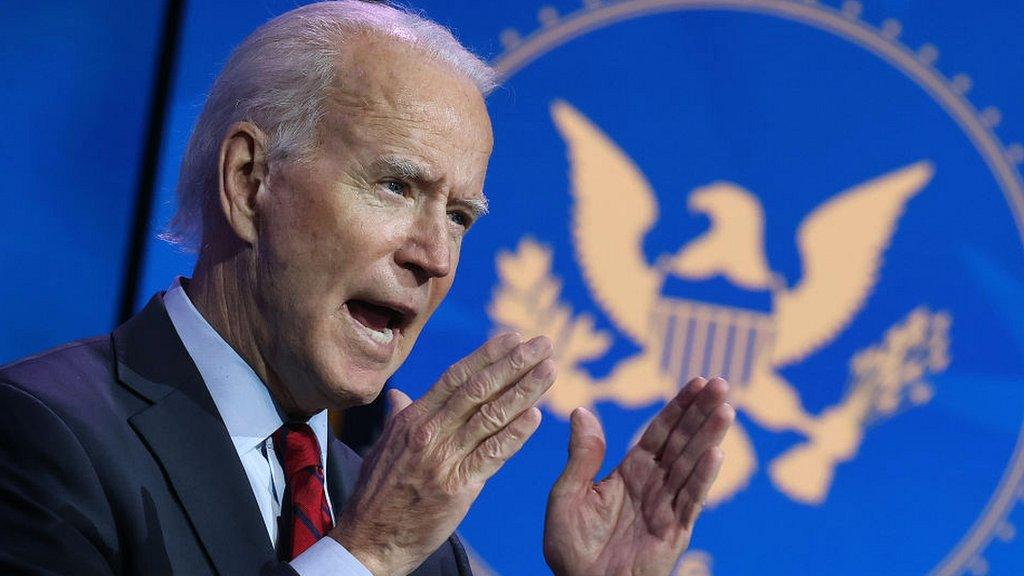Uganda election: Internet restored but social media blocked
- Published
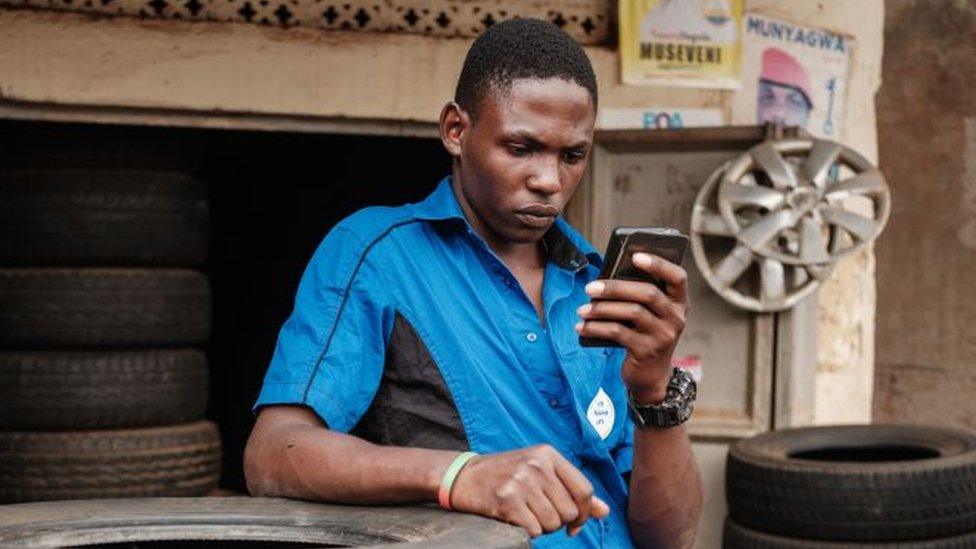
Online services were restricted ahead of last week's vote, and social media remains blocked
Ugandans are celebrating the resumption of internet services after a shutdown was imposed ahead of last week's election.
However, social media platforms remain blocked and are only accessible using Virtual Private Networks (VPN).
President Yoweri Museveni, who won an unprecedented sixth term in office, had accused the platforms of being biased.
Bobi Wine, presidential candidate for the opposition National Unity Platform, alleged the poll was marred by fraud.
The party's spokesperson Joel Ssenyonyi accused Mr Museveni of shutting down the internet to prevent them from sharing evidence of fraud.
He told the BBC's Newsday programme that the party was in the process of collecting election results forms that have evidence of irregularities.
Mr Ssenyonyi told the Reuters news agency that NUP's offices had been raided.
"They don't want work to continue at our offices because they know that we are putting together evidence to show the world how much of a fraudster Museveni is," he said.
Ugandan voters on election day: We want peace
President Museveni said on Saturday that the poll could be the "most cheating-free" in the history of the country.
The electoral commission declared Mr Museveni the winner with 59% of the vote, with his closest challenger Bobi Wine, a pop star whose real name is Robert Kyagulanyi, garnering 34%.
Mr Museveni has ruled Uganda since 1986.
His party is also on course to secure an overwhelming majority in the 500-member parliament.
Time running out for election challenge
By Patience Atuhaire, BBC News
Bobi Wine has alleged that he was cheated out of victory, accusing Mr Museveni of fraud.
But he has to prove these claims in court and time is running out.
According to Ugandan law, petitioners have 15 days, after the winner has been announced, to challenge the results at the Supreme Court.
Three days have passed since the declaration and Bobi Wine's supporters worry that he will not get the chance to argue his case in court as soldiers continue to blockade his home. Senior police officers say the move was aimed at preventing the politician from inciting violence.

What do the observers say?
The Africa Elections Watch coalition, which deployed 2,000 poll observers, said it had observed irregularities.
The European Union and the US did not deploy observer teams, but the US State Department has called for "independent, credible, impartial, and thorough investigations" into "many credible reports" of irregularities in Uganda's general election last week.
East African observer missions and also those from the African Union concluded that voting was largely peaceful and noted there were no major incidents to disrupt the exercise., external
Why was the internet shut down?
Online services were severely restricted on the eve of the 14 January elections after the government ordered telecom companies to block access to social media platforms as a "retaliation".
Mr Museveni had been angered by Facebook's decision to remove accounts linked to the ruling party after its investigations found that they had been involved in a coordinated operation to maliciously target opposition members.
"There is no way anybody can come [here] and play around with our country and decide who is good [and] who is bad," Mr Museveni said, accusing Facebook of "arrogance."
Several human rights organisations have led strong criticism against the Ugandan government for the internet shutdown and social media ban.
- Published12 January 2021
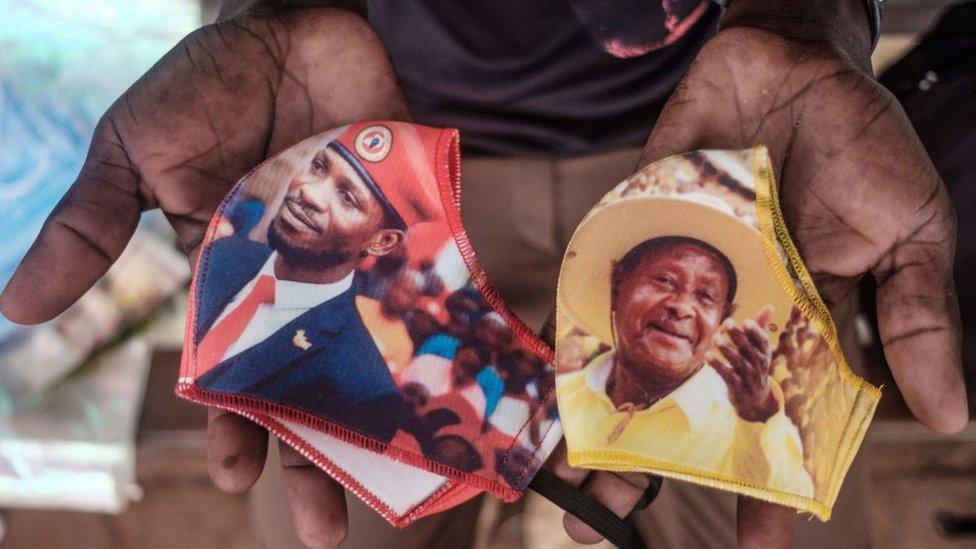
- Published22 February 2021
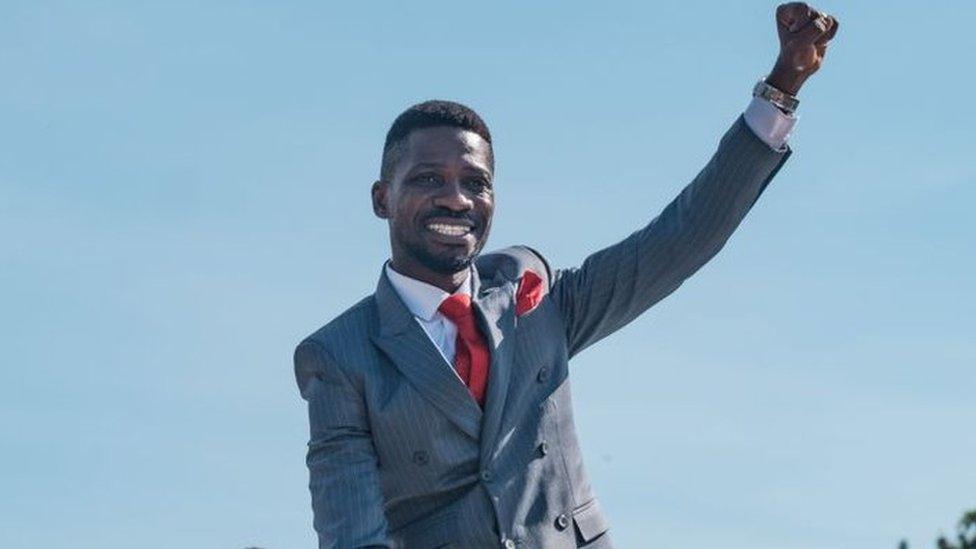
- Published10 May 2021
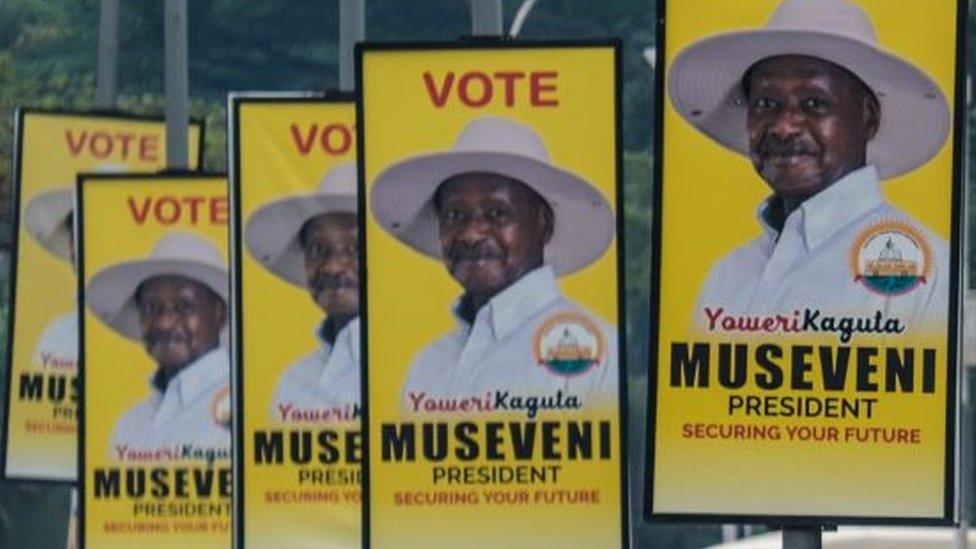
- Published20 December 2020
